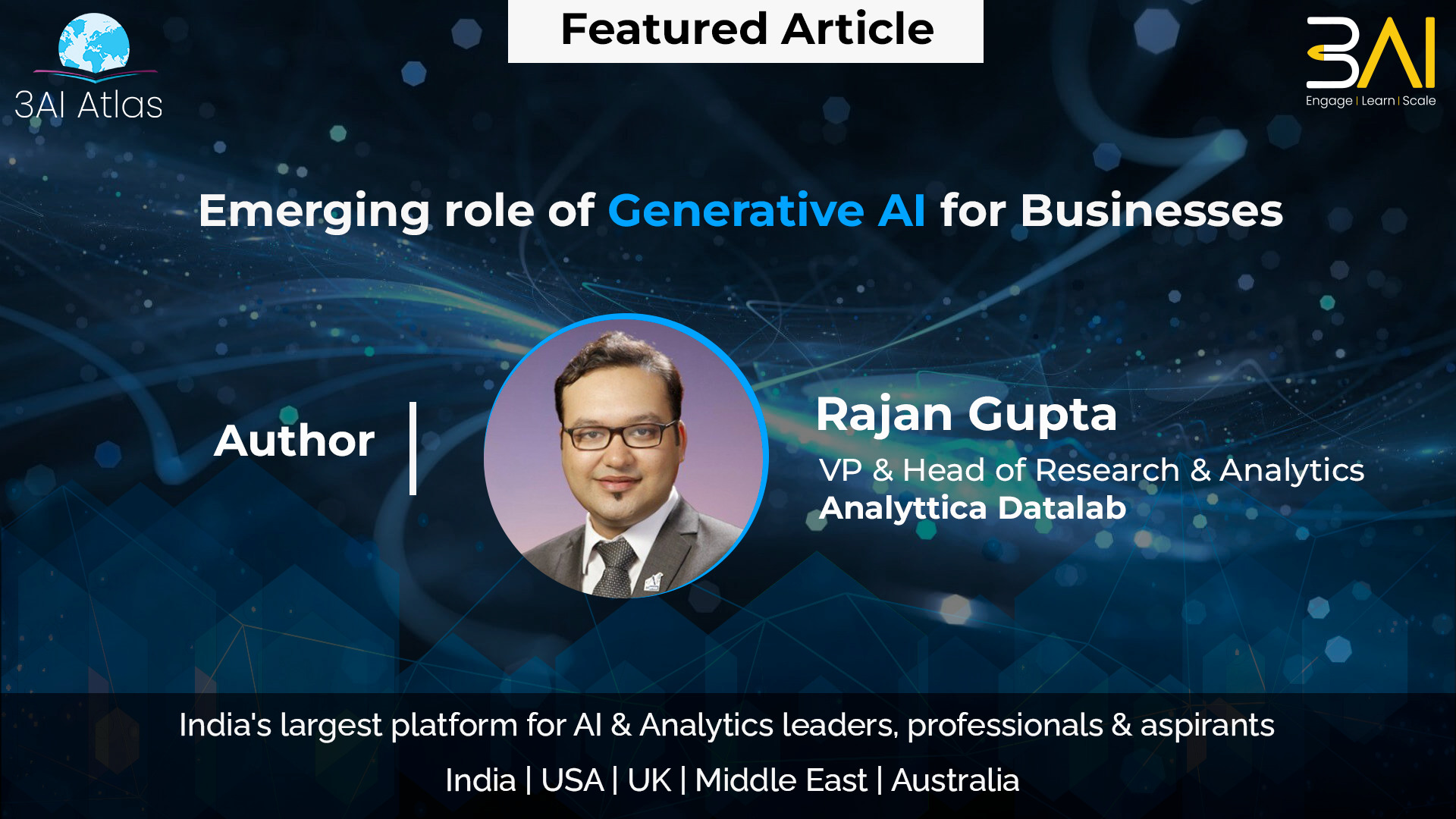How Academic Programs will get altered in the AI era?
3AI November 26, 2018

To make executive education more impactful, it is necessary to ensure that it is personalized, topical and relevant. We need to ensure that it addresses the needs of the sponsoring organizations and the ‘executive-students’. By combining personalized learning pathways, shorter, time-boxed courses for faster impact and creating an improved repository of courseware – we will be able to deliver executive education that can have a lasting and positive impact.
The traditional archetype of learning and employment – where students went to university and learned a skill that served them for the entirety of the careers – is rapidly evolving and changing. Today, we are in the age of continuous learning – where there is an inherent expectation on members of the employed workforce to constantly upgrade their knowledge and soft and hard skills. Earlier, executive education used to be a reserve of a privileged few high performers at large organizations, who showed great promise and rapidly rose through the ranks. Now, continuous learning across all the segments of the workforce is increasingly the new normal – almost to the point where it is the mandate for organizations that wish to grow and succeed in the business sphere. There is an expectation now that even the rank-and-file of the organization devote time to learning, unlearning & relearning and apply newfound ideas and techniques into their area of business.
What has been the driver behind this change? Why has upskilling and reskilling become the norm for the contemporary corporate career? A few important reasons underpin this change. The nature of the business today is extremely dynamic. Business environment and competitive landscape are changing faster than ever, with technology becoming the mainstay of the modern business. Tech-enabled startups are moving in and challenging traditional incumbents across industries. These changes are made a further complex with emergent ideas and changing paradigms of organizational management and leadership. In today’s fast-moving world of business, it is a critical priority for executives to keep their organizations nimble, proactive and armed with every arrow in their quiver, to ensure the continued success of their firms
Executive education is an important medium to achieve this goal and helps bridge the skill gap that is almost certain to rise when industries and organizations face structural headwinds. However, for executive education to live up to the promise and deliver value to employees and their organizations, we need to re-look at the programs itself. We need to ensure that the coursework and curriculum are topical, contextualized and relevant, whilst being personalized to the needs of the organization and its professionals. Here are a few perspectives on how executive education can be adapted for the industry4.0 era:
Expand the Scope of Executive Education and the Courseware
As we dismantle the traditional paradigms of work and education, we also need to rewire our traditional understanding of what an executive education comprises. For years, corporations relied on top-tier management schools and universities to facilitate the essential leadership training for their workforce. In today’s world, rewiring an understanding of leadership is just not going to cut it. Executive education programs need to add more in terms of practical, on-the-job skills, that will help employees perform better and remain relevant to the needs of the business.
There is now a strong case to expand the scope of executive education beyond traditional B-schools and include even MOOC-based education – which is provided by a plethora of websites today. Coursera, Udemy, LinkedIn Learning – to name a few – provide very tactical, hands-on understanding of essential, practical skills that the workforce can put to use right away, while also facilitating the career change aspirations that employees may have. Organizations need to seek out these MOOC-based providers to augment the executive education curriculum in a way that increases its scope and reach among employees.
These programs could very well help employees refresh their skill sets. For instance, such programs could help coders become well-rounded full-stack developers. Similarly, those with data engineering skills could be moved into areas such as high-performance analytics or artificial intelligence. Team leads could be educated formally in the tools and techniques associated with product management. For mapping current employee skills with the contemporary requirements of the business, MOOCs can be a critical intervention to incrementally upskill employees in their domain of work.
Incorporating the importance of shorter, tactical courses
Whilst there is no doubt about the value provided by a long-form one-year executive education program, companies also need to consider the benefits of short-term tactical coursework. Corporations need to augment their training programs with shorter, time-boxed courseware that can deliver instant impact for the organization.
There are two reasons why this is important. Firstly, given the speed at which technology and business mature, it may not always make sense to put someone in a one-year program and wait for the delivery of associated results. In such circumstances, short form courses help deliver faster time-to-value – with employees able to deliver results in weeks, rather than months. Secondly, shorter-term courses also help reduce some of the inherent barriers people have towards learning. Shortening the learning cycle, putting it to use immediately and seeing real-life results, can help employees see instant benefits of the lifelong learning paradigm and break down mental barriers to learning.
Co-create multiple, personalized career pathways
The key word here is ‘personalized’. We need to move away from the old thinking of one-size-fits-all training to deliver more tailored, fit-for-purpose and relevant executive education to employees. To start, organizations need to develop skill maps and assessments – to identify where the workforce is today in terms of the required skill sets and where they are expected to be. Once this is performed, L&D teams can help create personalized learning journey-maps for their employees – based on the career interests and aspirations of employees. For instance, for some employees, it may make sense to provide a refresher and upskilling in their current areas of work and for others, it may make sense to reskill them in new areas of the business. Either way, developing a personalized training regimen for the executive education of the employees will deliver better results and help them excel in their field and improve the efficacy of learning programs too.






